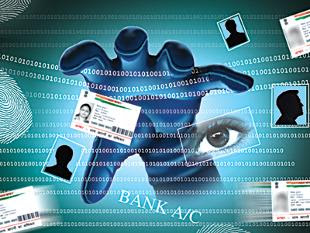Cyber Crime
Did U Know About Cyber Crime ?...
 Cybercrime, or computer related crime, is crime that involves a computer and a network. The computer may have been used in the commission of a crime, or it may be the target. Cybercrime may threaten a person or a nation's security and financial health. Issues surrounding these types of crimes have become high-profile, particularly those surrounding hacking, copyright infringement, unwarranted mass-surveillance, child pornography, and child grooming. There are also problems of privacy when confidential information is intercepted or disclosed, lawfully or otherwise. Debarati Halder and K. Jaishankar further define cybercrime from the perspective of gender and defined 'cybercrime against women' as "Crimes targeted against women with a motive to intentionally harm the victim psychologically and physically, using modern telecommunication networks such as internet and mobile phones". however, a Microsoft report shows that such survey-based estimates are "hopelessly flawed" and exaggerate the true losses by orders of magnitude.
Cybercrime, or computer related crime, is crime that involves a computer and a network. The computer may have been used in the commission of a crime, or it may be the target. Cybercrime may threaten a person or a nation's security and financial health. Issues surrounding these types of crimes have become high-profile, particularly those surrounding hacking, copyright infringement, unwarranted mass-surveillance, child pornography, and child grooming. There are also problems of privacy when confidential information is intercepted or disclosed, lawfully or otherwise. Debarati Halder and K. Jaishankar further define cybercrime from the perspective of gender and defined 'cybercrime against women' as "Crimes targeted against women with a motive to intentionally harm the victim psychologically and physically, using modern telecommunication networks such as internet and mobile phones". however, a Microsoft report shows that such survey-based estimates are "hopelessly flawed" and exaggerate the true losses by orders of magnitude.Approximately $1.5 billion was lost in 2012 to online credit and debit card fraud in the US. In 2016, a study by Juniper Research estimated that the costs of cybercrime could be as high as 2.1 trillion by 2019.
Classification
Computer crime encompasses a broad range of activities.
Fraud and financial crimes Computer fraud is any dishonest misrepresentation of fact intended to let another to do or refrain from doing something which causes loss. In this context, the fraud will result in obtaining a benefit by: Altering in an unauthorized way. This requires little technical expertise and is common form of theft by employees altering the data before entry or entering false data, or by entering unauthorized instructions or using unauthorized processes;
 Altering, destroying, suppressing, or stealing output, usually to conceal unauthorized transactions.
Altering, destroying, suppressing, or stealing output, usually to conceal unauthorized transactions.This is difficult to detect;
Altering or deleting stored data;
Other forms of fraud may be facilitated using computer systems, including bank fraud, carding, identity theft, extortion, and theft of classified information.
A variety of internet scams, many based on phishing and social engineering, target consumers and businesses.
Cyberterrorism
Government officials and information technology security specialists have documented a significant increase in Internet problems and server scans since early 2001. But there is a growing concern among federal officials that such intrusions are part of an organized effort by cyberterrorists, foreign intelligence services, or other groups to map potential security holes in critical systems. A cyberterrorist is someone who intimidates or coerces a government or organization to advance his or her political or social objectives by launching a computer-based attack against computers, networks, or the information stored on them.
Cyberterrorism in general can be defined as an act of terrorism committed through the use of cyberspace or computer resources . As such, a simple propaganda piece in the Internet that there will be bomb attacks during the holidays can be considered cyberterrorism. There are also hacking activities directed towards individuals, families, organized by groups within networks, tending to cause fear among people, demonstrate power, collecting information relevant for ruining peoples' lives, robberies, blackmailing etc.
Cyberextortion
Cyberextortion occurs when a website, e-mail server, or computer system is subjected to or threatened with repeated denial of service or other attacks by malicious hackers. These hackers demand money in return for promising to stop the attacks and to offer "protection". According to the Federal Bureau of Investigation, cyberextortionists are increasingly attacking corporate websites and networks, crippling their ability to operate and demanding payments to restore their service. More than 20 cases are reported each month to the FBI and many go unreported in order to keep the victim's name out of the public domain. Perpetrators typically use a distributed denial-of-service attack.
BE SAFE BE carefull of the Cyber crime?. THankX

Comments
Post a Comment